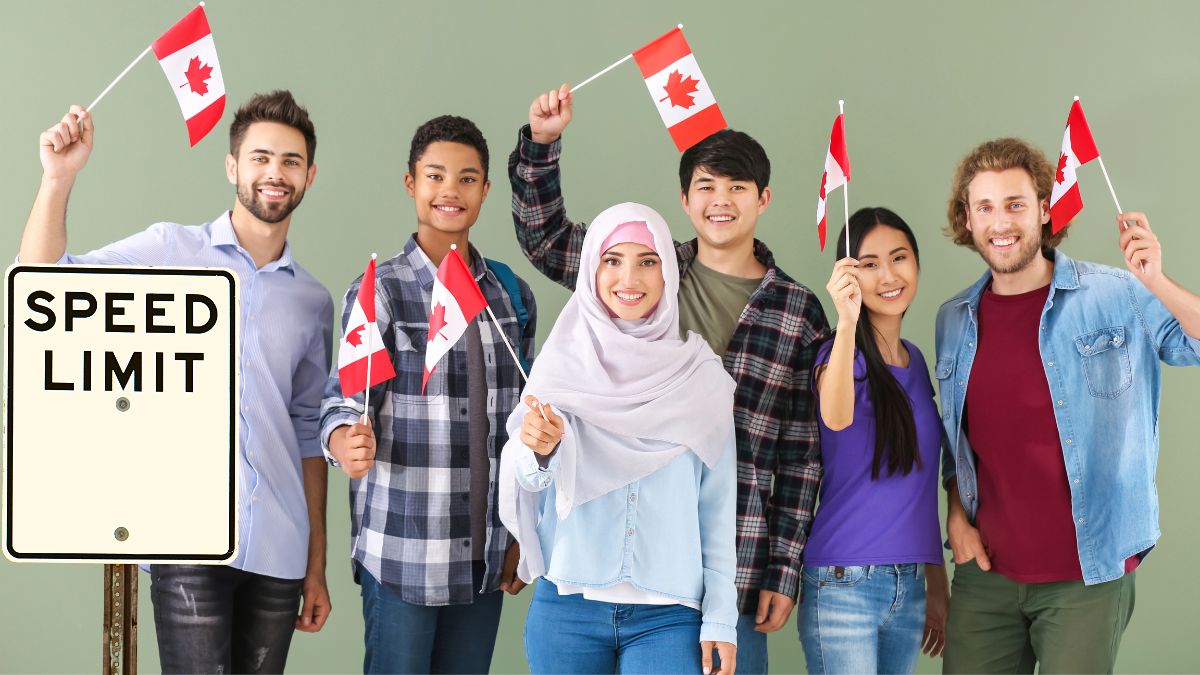On January 22, 2024, Marc Miller, the Minister of Immigration, Refugees, and Citizenship Canada (IRCC), revealed a two-year cap on the acceptance of international students in an effort to stabilize growth. For the year 2024, the imposed limit will result in approximately 360,000 approved permits, marking a 35% reduction compared to the previous year, 2023. Notably, these measures do not affect applications from master’s, doctoral, elementary, and secondary education students, as well as current permit holders. Changes to the Post-Graduation Work Permit Program are set to take effect from September 1, 2024, impacting the curriculum licensing arrangements for students. Graduates from master’s and other short graduate programs will now qualify for a 3-year work permit. Furthermore, open work permits will exclusively be available to spouses of master’s and doctoral students.
[aikit_audio_player]
The cap will have no effect on existing study permit holders or the renewal of study permits, and they exclude individuals pursuing master’s and doctoral degrees. As of January 22, 2024, the Immigration, Refugees and Citizenship Canada (IRCC) stipulates that every study permit application sent to them must include an attestation letter from a province or territory (PT). Provinces or territories are anticipated to establish a procedure for issuing these letters by March 31, 2024.
How have the requirements for eligibility for the PGWP changed?
The Immigration, Refugees, and Citizenship Canada (IRCC) has introduced modifications to the eligibility criteria for the Post Graduation Work Permit (PGWP). Effective September 2024, international students embarking on a study program affiliated with a curriculum licensing arrangement will no longer qualify for the PGWP. As a matter of fact, the rationale behind this decision lies in the oversight disparities between private colleges operating under curriculum licensing agreements and their public counterparts. Although these programs have witnessed an influx of international students in recent years, the IRCC considers them to be a loophole in PGWP eligibility due to their lesser regulatory scrutiny.
Furthermore, the IRCC has declared a significant change in favor of international students who have completed master’s programs or other brief graduate-level courses. These graduates will now have the opportunity to apply for a three-year work permit, diverging from the existing criteria that tie the PGWP duration to the length of the individual’s study program. This shift is particularly beneficial for master’s students as it extends their eligibility period to acquire Canadian work experience, facilitating a smoother transition to permanent residency.

In the coming weeks, the department plans to unveil additional details regarding open work permits for the spouses of international students. Notably, IRCC specifies that open work permits will exclusively be extended to the spouses of international students enrolled in master’s and doctoral programs. Unfortunately, spouses of international students in other educational levels, encompassing undergraduate and college programs, will no longer meet the eligibility criteria for these open work permits.
How mana immigration Can Help
At mana immigration, we’re here to make getting a study permit for Canada easy. With the recent changes in rules, like a two-year limit on international student permits and new Post-Graduation Work Permit Program updates from September 1, 2024, we’ve got you covered. Our professional team knows all about the latest rules, and we’re ready to help you, whether you’re going for a master’s, a doctoral, or another short graduate program. We’ll guide you through the whole application process, explaining everything in simple terms and making sure you’re on the right track. Trust mana immigration to be your go-to partner for a hassle-free journey to getting your study permit in Canada.
So, start your path to a bright future in Canada by reaching out to us or completing our assessment form. With mana immigration, you’re not just navigating immigration; you’re charting a course for success in a country that recognizes and values your potential and dreams.







Aron Prosacco
The decision to cap the number of international student permits could have far-reaching consequences, both positive and negative. On one hand, it might help manage resources and ensure high-quality education and integration for those who are admitted. On the other hand, it could limit opportunities for prospective students and impact the
Lolita Schinner
This article highlights significant changes to Canada’s immigration policy concerning international students. The cap on permits and adjustments to the PGWP are crucial for prospective students to understand. While the intention to stabilize growth is understandable, the exclusivity of certain benefits to master’s and doctoral students could widen the gap in opportunities among international students. It’s essential for policies to balance between controlling numbers and ensuring fairness across all education levels.
horacio dare
This new cap on international student permits by IRCC seems like a double-edged sword. On one hand, it might help manage the quality of education and integration of international students into Canadian society more effectively. On the other hand, it could potentially limit the diversity and global perspective that these students bring to campuses across Canada.